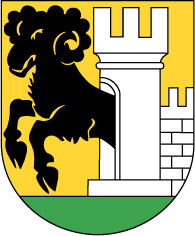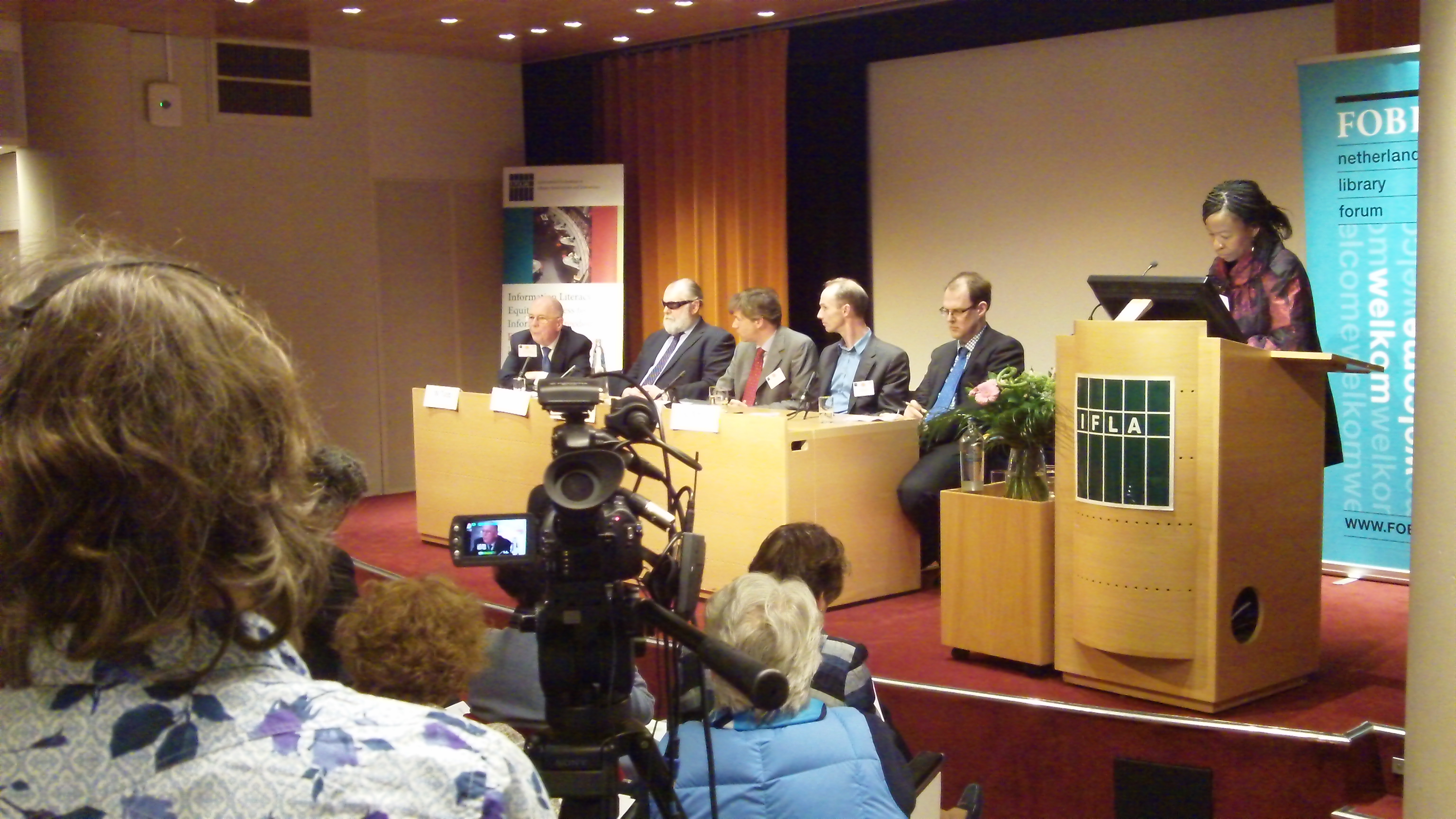|
Wilhelm Martin Luther
Wilhelm Martin Luther (27 November 1912 – 2 June 1962) was a German librarian, musicologist and director of the Göttingen State and University Library. Life Born in , Luther studied musicology, philosophy and theology in Göttingen and Berlin. In 1936 he received his doctorate with a thesis on Gallus Dreßler in Göttingen. He completed his studies with a doctorate and state examination. He entered the academic library service in 1939; after his subject examination in 1941 at the Berlin State Library he worked at the Göttingen University Library. Under he was promoted to deputy director, and in 1958 he succeeded him in his office. Luther was particularly committed to the re-establishment of the German nterlibrary loanafter the end of the Second World War and to (central) cataloguing. Thus the "Central Catalogue of Foreign Literature" was maintained in Göttingen, which formed an important basis for interlibrary loan. He also founded the Niedersächsische Zentralkatalo ... [...More Info...] [...Related Items...] OR: [Wikipedia] [Google] [Baidu] |
Librarian
A librarian is a person who works professionally in a library providing access to information, and sometimes social or technical programming, or instruction on information literacy to users. The role of the librarian has changed much over time, with the past century in particular bringing many new media and technologies into play. From the earliest libraries in the ancient world to the modern information hub, there have been keepers and disseminators of the information held in data stores. Roles and responsibilities vary widely depending on the type of library, the specialty of the librarian, and the functions needed to maintain collections and make them available to its users. Education for librarianship has changed over time to reflect changing roles. History The ancient world The Sumerians were the first to train clerks to keep records of accounts. ''"Masters of the books"'' or "keepers of the tablets" were scribes or priests who were trained to handle the vast amount and c ... [...More Info...] [...Related Items...] OR: [Wikipedia] [Google] [Baidu] |
Schaffhausen
Schaffhausen (; gsw, Schafuuse; french: Schaffhouse; it, Sciaffusa; rm, Schaffusa; en, Shaffhouse) is a list of towns in Switzerland, town with historic roots, a municipalities of Switzerland, municipality in northern Switzerland, and the capital of the canton of Schaffhausen, canton of the same name; it has an estimated population of 36,000 It is located right next to the shore of the High Rhine; it is one of four Swiss towns located on the northern side of the Rhine, along with , the historic , and . The old town has many fine Renaissance era buildings decorated with exterior frescos and sculpture, as well as the old canton fortress, the ''Munot''. Schaffhausen is also a railway junction of Swiss and German rail networks. One of the lines connects the town with the nearby Rhine Falls in , Europe's largest waterfall, a tourist attraction. The official language of Schaffhausen is (the Swiss variety of Standard) Swiss Standard German, German, but the main spoken language ... [...More Info...] [...Related Items...] OR: [Wikipedia] [Google] [Baidu] |
German Librarians
German(s) may refer to: * Germany (of or related to) **Germania (historical use) * Germans, citizens of Germany, people of German ancestry, or native speakers of the German language ** For citizens of Germany, see also German nationality law **Germanic peoples (Roman times) * German language **any of the Germanic languages * German cuisine, traditional foods of Germany People * German (given name) * German (surname) * Germán, a Spanish name Places * German (parish), Isle of Man * German, Albania, or Gërmej * German, Bulgaria * German, Iran * German, North Macedonia * German, New York, U.S. * Agios Germanos, Greece Other uses * German (mythology), a South Slavic mythological being * Germans (band), a Canadian rock band * "German" (song), a 2019 song by No Money Enterprise * ''The German'', a 2008 short film * "The Germans", an episode of ''Fawlty Towers'' * ''The German'', a nickname for Congolese rebel André Kisase Ngandu See also * Germanic (other) * Germa ... [...More Info...] [...Related Items...] OR: [Wikipedia] [Google] [Baidu] |
1962 Deaths
Year 196 ( CXCVI) was a leap year starting on Thursday (link will display the full calendar) of the Julian calendar. At the time, it was known as the Year of the Consulship of Dexter and Messalla (or, less frequently, year 949 ''Ab urbe condita''). The denomination 196 for this year has been used since the early medieval period, when the Anno Domini calendar era became the prevalent method in Europe for naming years. Events By place Roman Empire * Emperor Septimius Severus attempts to assassinate Clodius Albinus but fails, causing Albinus to retaliate militarily. * Emperor Septimius Severus captures and sacks Byzantium; the city is rebuilt and regains its previous prosperity. * In order to assure the support of the Roman legion in Germany on his march to Rome, Clodius Albinus is declared Augustus by his army while crossing Gaul. * Hadrian's wall in Britain is partially destroyed. China * First year of the '' Jian'an era of the Chinese Han Dynasty. * Emperor Xian of ... [...More Info...] [...Related Items...] OR: [Wikipedia] [Google] [Baidu] |
1912 Births
Year 191 ( CXCI) was a common year starting on Friday (link will display the full calendar) of the Julian calendar. At the time, it was known as the Year of the Consulship of Apronianus and Bradua (or, less frequently, year 944 ''Ab urbe condita''). The denomination 191 for this year has been used since the early medieval period, when the Anno Domini calendar era became the prevalent method in Europe for naming years. Events By place Parthia * King Vologases IV of Parthia dies after a 44-year reign, and is succeeded by his son Vologases V. China * A coalition of Chinese warlords from the east of Hangu Pass launches a punitive campaign against the warlord Dong Zhuo, who seized control of the central government in 189, and held the figurehead Emperor Xian hostage. After suffering some defeats against the coalition forces, Dong Zhuo forcefully relocates the imperial capital from Luoyang to Chang'an. Before leaving, Dong Zhuo orders his troops to loot the tombs of the H ... [...More Info...] [...Related Items...] OR: [Wikipedia] [Google] [Baidu] |
International Federation Of Library Associations And Institutions
The International Federation of Library Associations and Institutions (IFLA) is the leading international body representing the interests of people who rely on libraries and information professionals. An independent, non-governmental, not-for-profit organization, IFLA was founded in Scotland in 1927 and maintains headquarters at the National Library of the Netherlands in The Hague. IFLA sponsors the annual IFLA World Library and Information Congress, promoting universal and equitable access to information, ideas, and works of imagination for social, educational, cultural, democratic, and economic empowerment. IFLA also produces several publications, including IFLA Journal. IFLA closely partners with UNESCO, resulting in several jointly produced manifestos. IFLA is also a founding member of Blue Shield, which works to protect the world's cultural heritage when threatened by wars and natural disaster. History IFLA was founded in Edinburgh, Scotland, on 30 September 1927, when li ... [...More Info...] [...Related Items...] OR: [Wikipedia] [Google] [Baidu] |
International Association Of Music Libraries, Archives And Documentation Centres
The International Association of Music Libraries, Archives and Documentation Centres (IAML), also known as ''Association Internationale des Bibliothèques, Archives et Centres de Documentation Musicaux'' (AIBM) and ''Internationale Vereinigung der Musikbibliotheken, Musikarchive und Musikdokumentationszentren'' (IVMB), is an organisation of libraries with music departments, music conservatory libraries, radio and orchestra archives, university institutes, music documentation centers, music publishers, and music dealers that fosters international cooperation and promotes music bibliography and music library science. It was founded in Paris in 1951 and its three official languages are English, German, and French. History IAML was founded after World War II to "promote international cooperation and standardization in such matters as cataloging, standards of service, personnel training and the exchange of materials between libraries."Anders Lönn, "International Association of Music L ... [...More Info...] [...Related Items...] OR: [Wikipedia] [Google] [Baidu] |
Deutsche Forschungsgemeinschaft
The German Research Foundation (german: Deutsche Forschungsgemeinschaft ; DFG ) is a German research funding organization, which functions as a self-governing institution for the promotion of science and research in the Federal Republic of Germany. In 2019, the DFG had a funding budget of €3.3 billion. Function The DFG supports research in science, engineering, and the humanities through a variety of grant programmes, research prizes, and by funding infrastructure. The self-governed organization is based in Bonn and financed by the German states and the federal government of Germany. As of 2017, the organization consists of approximately 100 research universities and other research institutions. The DFG endows various research prizes, including the Leibniz Prize. The Polish-German science award Copernicus Award, Copernicus is offered jointly with the Foundation for Polish Science. According to a 2017 article in ''The Guardian'', the DFG has announced it will publish its re ... [...More Info...] [...Related Items...] OR: [Wikipedia] [Google] [Baidu] |
Johann-Sebastian-Bach-Institut
The Johann Sebastian Bach Institute (German: Johann-Sebastian-Bach-Institut) was an institute dedicated to Johann Sebastian Bach in Göttingen, Germany. It was founded in 1951 as one of two institutes preparing the New Bach Edition, the second complete edition of the composer's works. The partner organisation was the Leipzig Bach Archive in what was then East Germany on the other side of the Iron Curtain from Göttingen. The new edition met rigorous scientific requirements and at the same time served musical practice. The institute ended its activities in 2006 and the final volume of the New Bach Edition set appeared the following year. However, the Bach Archive Leipzig remains active and has issued revisions of some single volumes. Directors * 1951–1961: Hans Albrecht * 1961–1962: Wilhelm Martin Luther * 1962–1993: Georg von Dadelsen * 1993–2006: Martin Staehelin Further reading * Johann-Sebastian-Bach-Institut Göttingen und Bach-Archiv Leipzig (ed), Die Neu ... [...More Info...] [...Related Items...] OR: [Wikipedia] [Google] [Baidu] |
Johann Sebastian Bach
Johann Sebastian Bach (28 July 1750) was a German composer and musician of the late Baroque period. He is known for his orchestral music such as the '' Brandenburg Concertos''; instrumental compositions such as the Cello Suites; keyboard works such as the ''Goldberg Variations'' and ''The Well-Tempered Clavier''; organ works such as the '' Schubler Chorales'' and the Toccata and Fugue in D minor; and vocal music such as the ''St Matthew Passion'' and the Mass in B minor. Since the 19th-century Bach revival he has been generally regarded as one of the greatest composers in the history of Western music. The Bach family already counted several composers when Johann Sebastian was born as the last child of a city musician in Eisenach. After being orphaned at the age of 10, he lived for five years with his eldest brother Johann Christoph, after which he continued his musical education in Lüneburg. From 1703 he was back in Thuringia, working as a musician for Protestant c ... [...More Info...] [...Related Items...] OR: [Wikipedia] [Google] [Baidu] |
Musicology
Musicology (from Greek μουσική ''mousikē'' 'music' and -λογια ''-logia'', 'domain of study') is the scholarly analysis and research-based study of music. Musicology departments traditionally belong to the humanities, although some music research is scientific in focus (psychological, sociological, acoustical, neurological, computational). Some geographers and anthropologists have an interest in musicology so the social sciences also have an academic interest. A scholar who participates in musical research is a musicologist. Musicology traditionally is divided in three main branches: historical musicology, systematic musicology and ethnomusicology. Historical musicologists mostly study the history of the western classical music tradition, though the study of music history need not be limited to that. Ethnomusicologists draw from anthropology (particularly field research) to understand how and why people make music. Systematic musicology includes music theory, aesthe ... [...More Info...] [...Related Items...] OR: [Wikipedia] [Google] [Baidu] |




